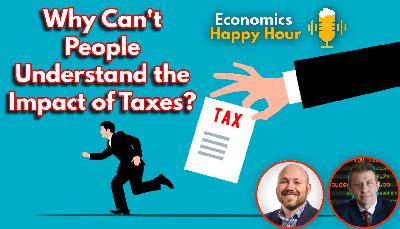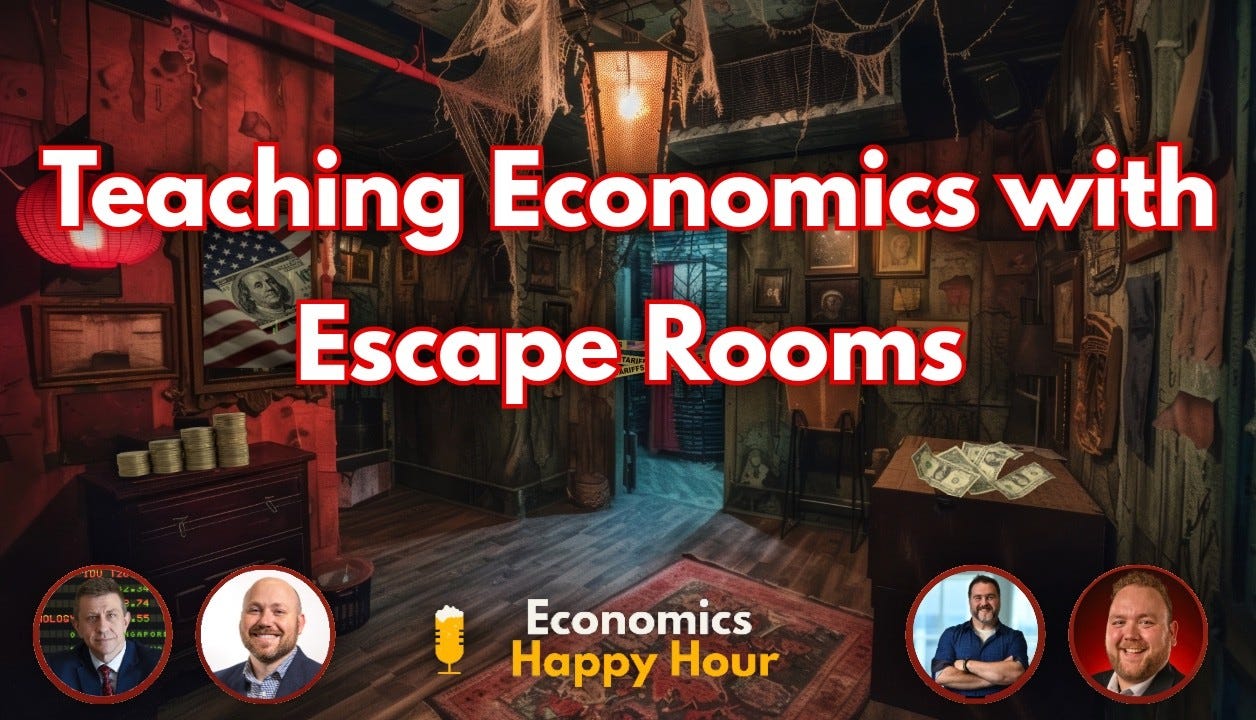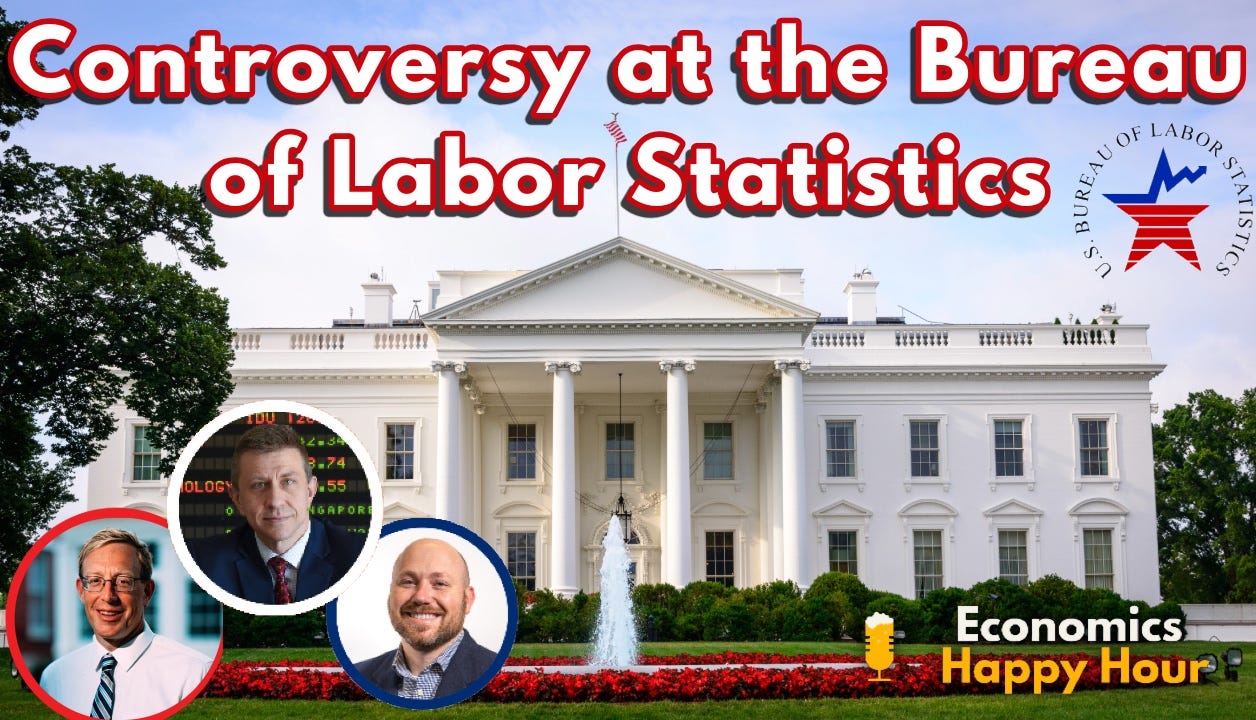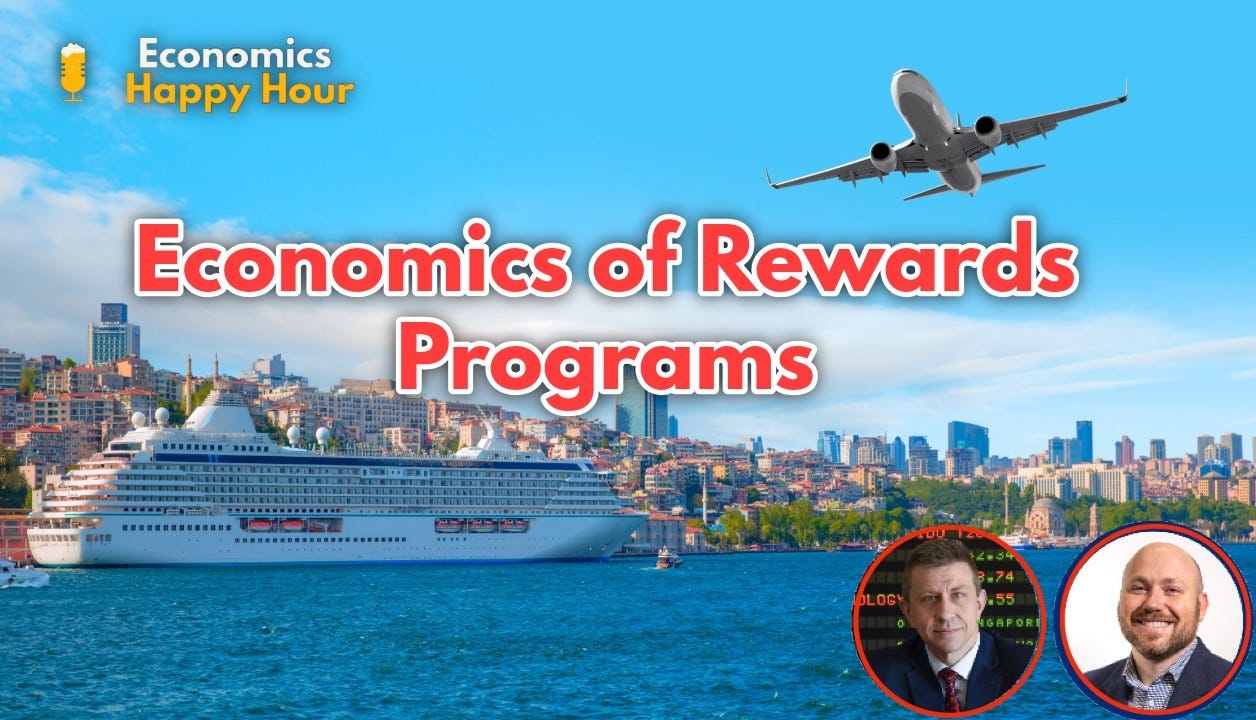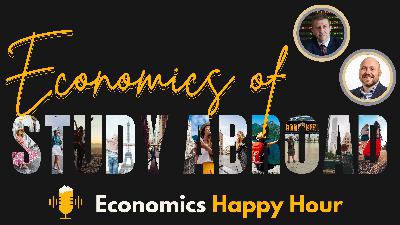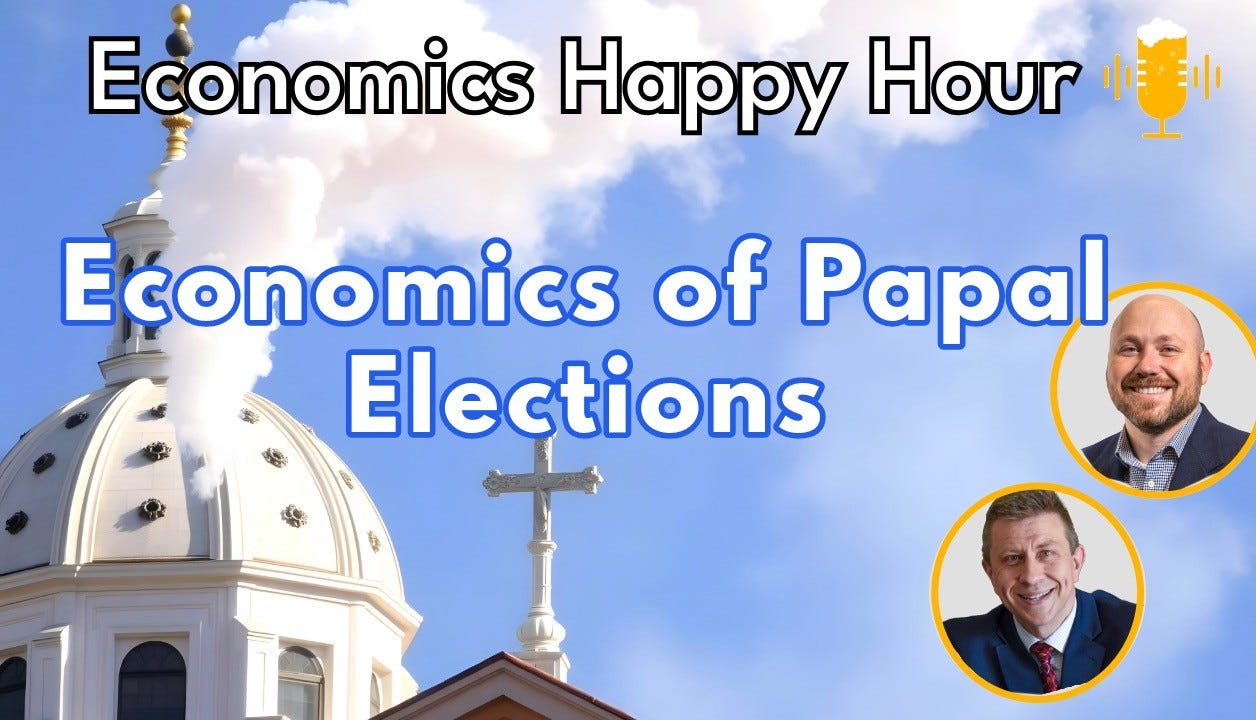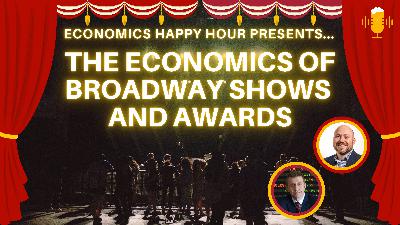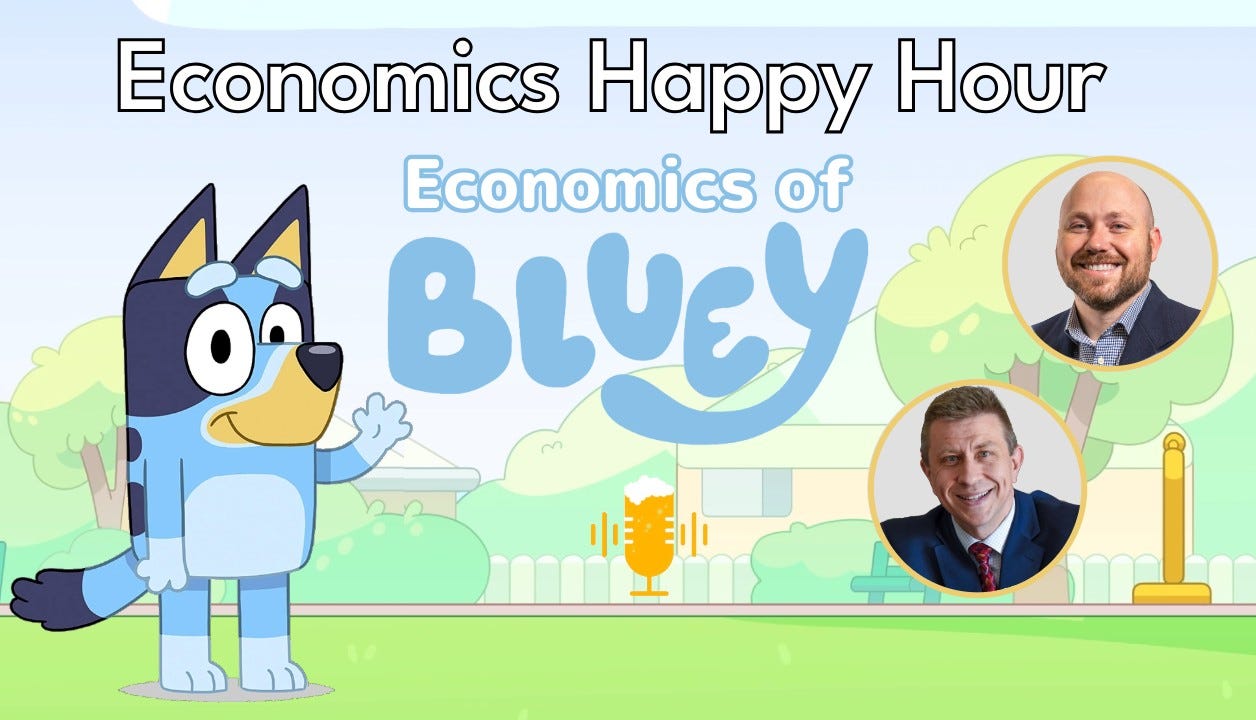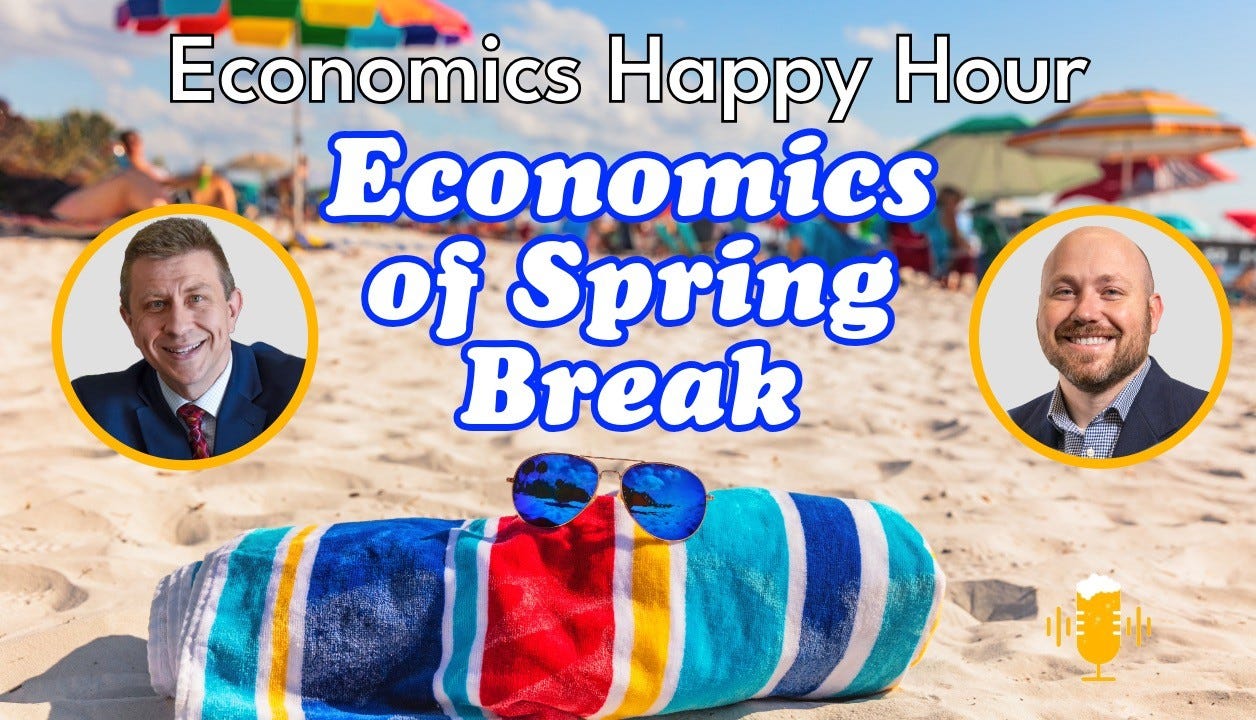Why is it Tough to Teach Students About Taxes?
Description
Let’s dive into a surprisingly tricky topic to teach: tax incidence. In this episode, we explore why this seemingly simple concept trips up so many students, how elasticity shapes “who pays,” and what strategies actually help the idea stick. It’s a candid mid-semester check-in that’s full of travel stories, fall-break frustrations, and creative teaching analogies.
In this episode, we discuss:
* Why tax incidence is frustrating to teach compared to other topics.
* How elasticity determines the division of tax burdens between buyers and sellers.
* Whether professors should “nudge” better study habits or let students learn through consequences.
* And a whole lot more!
Catch up on some old episodes:
You can also listen to us on Google Podcasts, TuneIn Radio, and Apple Podcasts. If one of these is your go-to podcast service, be sure to rate us and subscribe!
Some show notes:
October marks the midpoint of the semester for each of us, which is a good enough reason to share a drink. Jadrian went with a “topless” Pride Cream Ale, which is really only possible thanks to a nifty gadget that removes the can lid. Matt stuck with a classic Brooklyn Brewery Pale Ale.
Our main topic for this episode focused on challenging topics to teach, and for Jadrian, that would be the elusive concept of tax incidence. It seems like every year, students misinterpret how taxes affect buyers and sellers, even though Jadrian has tried different techniques for teaching that concept. Many assume that a 50-cent tax applied to an item costing $1 results in a new price of $1.50, which means they’re missing the concept of tax burdens affecting both sellers and buyers.
This is such a great time to be teaching tax incidence because we’re seeing this play out in the news with tariffs on imports. The big question when tariffs were announced focused on who would be paying the tariffs, foreign countries or American consumers. Economists are usually quick to point on tax incidence in that consumers would likely pay a portion of the tariff through higher prices.
This was also a good chance to talk about the limits of what we can do as instructors. If it takes hours of revisions to get the class 1% better on a particular topic, perhaps there are better uses of our time? That led us into a brief conversation on instructional paternalism and how much oversight professors should place on shaping student behavior around deadlines and pacing. That, however, may become a future episode.
This week’s pop culture references:
Jadrian jumped in quickly to block Matt from reusing one of his favorite clips. Jadrian’s contribution is from J. Cole, in which he sings about the frustration many people feel about paying taxes without having a real say in how they’re spent.
Matt went with two Broadway hits from Lin-Manuel Miranda. In the Heights has a great song where characters recognize that their lottery winnings would be reduced because of taxes. And then in Hamilton, the characters talk about the resistance to British taxation.
This is a public episode. If you would like to discuss this with other subscribers or get access to bonus episodes, visit econhappyhour.substack.com

